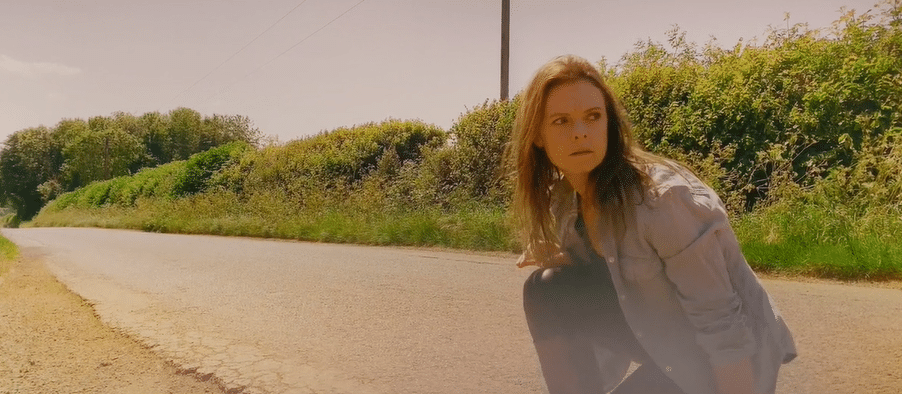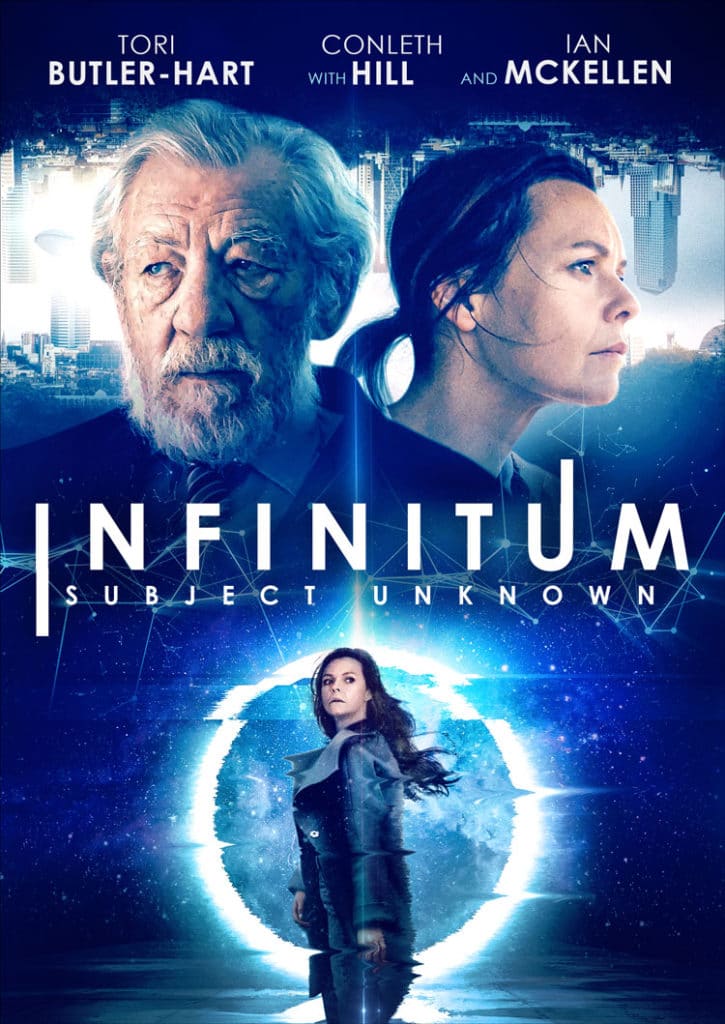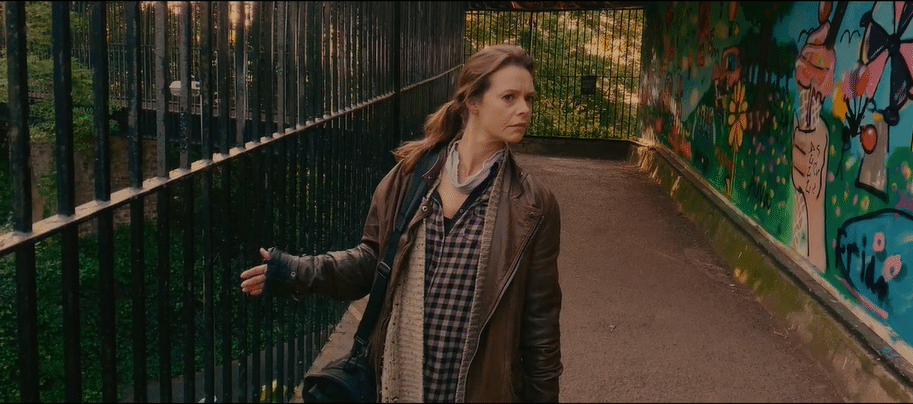
Sci-fi of all stripes has often been naturally inclined towards exploring quantum theory: this alternative means to define reality lends itself to intriguing examinations of the human condition, which potentially makes for good cinema. It’s very much the case in Infinitum: Subject Unknown, a low-key but adventurous and thought-provoking low-budget film which spins together some very contemporary concerns with its own focus on quantum theory. We get a brief abundance of plot at the beginning, which goes some way towards establishing the opening premise (a sequence which also contains cameos by Ian McKellen and Conleth ‘Yes, Varys from Game of Thrones’ Hill). In the world of Infinitum, the ‘paraverse’ is a real phenomenon; it’s now largely seen as a place which affords great potential for human development, even potential evolution. But, to take advantage of this potential, subjects are needed.
Cue a glimpse of a familiar, but unfamiliar world with a woman waking, afraid and confined in an attic. It’s clear enough that she has no memory of where she is, or why; as she struggles to get free, she begins to experience split visions which indicate other ‘strands’ of reality concurrent with her own, with this point being neatly made by a glimpse through a nearby window momentarily revealing a very different scene outside. The woman (Tori Butler-Hart) therefore has some sense that her situation and environs are not quite right, but she instinctively knows that she must escape from this room. Wavering moments of consciousness impede her progress, and more than this she begins to undergo what she half-hears – from somewhere – are called ‘resets’, at which point she finds herself back in the same situation as she was when this all began. This continues, alongside the sense of having done it all before, which grows ever more pervasive. As the film progresses, it takes on the feel of being a puzzle to solve, with clues – recurring or otherwise – to be used. Steadily, the woman comes to understand that she needs to get to a place called the Wytness Centre, which we know is integral in this kind of human experimentation. But what is the best way to proceed, in a world of endless variables and possibilities?
There’s a great deal to commend here, but it does bear saying that the sci-fi at play in Infinitum is very subtle, with little emphasis on anything flashy or grand – at least, in the way of effects. There’s some, sure, but this is more used to reiterate the strangeness of Jane’s situation, adrift in a place which she doesn’t understand (which would scarcely be less odd even without the strange things she does see). There is a framework given however, hence the few ‘talking heads’ sequences featuring McKellen and Hill, and this is repeated later in the film: this helps to re-centre the film and its subject matter. It’s pretty unbelievable, by the by, that this was all shot on an iPhone. Not so long back this would have marked out a film as an interesting idea rather than necessarily a successful one, but how times have changed: whilst Infinitum is clearly shot on handheld, it’s impressive in quality and looks great. The re-use of the opening scenes to establish the helplessness of the protagonist is a little challenging – a kind of quantum Groundhog Day, if you like – but quicker edits help to move things along, without losing that important sense of Jane’s frustration. It’s very much Tori Butler-Hart’s film, by the way: whilst it’s great to have Ian McKellen and Conleth Hill on board for their roles, Butler-Hart is on-screen for almost every second, and a lesser actress could easily have lost the audience. She pitches it perfectly given the situations unfolding around her, and she does most of it without saying anything.

Does Infinitum: Subject Unknown resemble any other films out there? Perhaps in some respects, given its close focus on the implications of time, space and place shifting into something ungovernable: Synchronic (2019) came to mind in places, as in some ways, and I’m being in earnest here, so did that Tarkovsky-style of sci-fi which takes a minimal cast and a science-fiction premise and then explores its impact on the psyche, rather than plumping for emphasis on visuals. That all being said, there are also some surprising similarities to supernatural horror rather than sci-fi; the idea of a character who cannot understand what is happening to them or why they are alone reminded me of films like The Others (2001), to name but one. The rootlessness and fear, whether because of quantum physics or more supernatural causes, is similar.
But perhaps it’s the way in which contemporary concerns have crept into the sci-fi of Infinitum which will, in time, be one of its chief calling cards. It’s a film in which time is the only constant, but in its way, it’s a snapshot of an extraordinary time. The use of deja-vu, claustrophobia, anxieties about both present and future, loneliness and of course a deserted outside world which is both desirable and threatening; well, it’s not hard to see the lockdown during which this film was shot finding expression here, alongside the more fantastical content. All in all, Infinitum does a good job with its ideas and initiative, and it’s a subtle, unconventional and often surreal take on the horrors which could be sparked by science.
Infinitum: Subject Unknown hits VOD on 22nd March and DVD this April.
